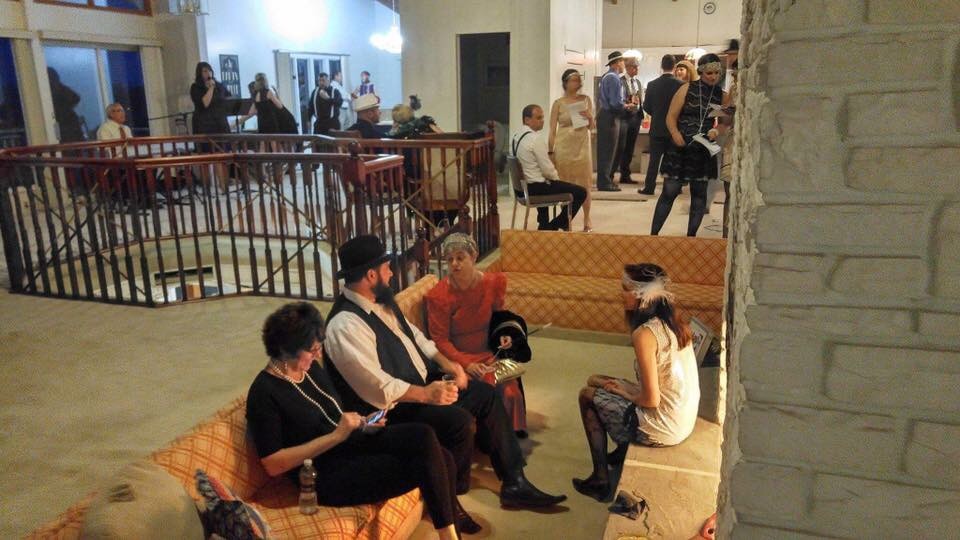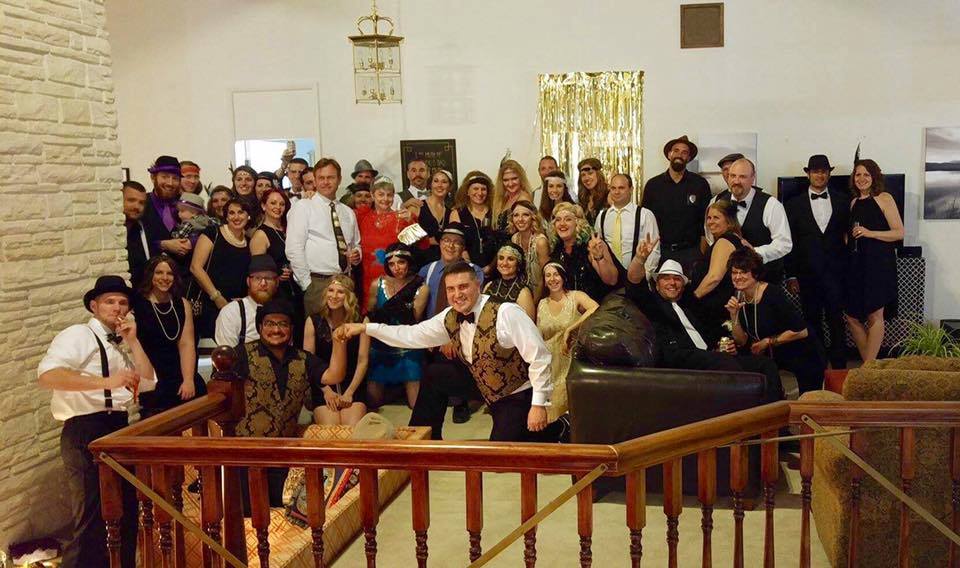By Matt Powers
Never would I have thought that LiFT would get involved with murder mystery theater. Not that I had a bias against it, it just never crossed my mind. I always envisioned a mix of new, original plays and Elizabethan theater for LiFT, because that’s how we started. As luck would have it, we’ve added to our repertoire.
So this all started when the owners of the Overlook Mansion approached LiFT with a couple of ideas. One was for a Dia de Los Muertos event (which was a load fun, but for another post), and something like a “whole house Clue” event. Being the geek I am, I loved Clue the board game, and adored the film, but didn’t want to rehash Clue or Live Action Clue (which is actually a thing with ton of rules). We wanted something different, that people hadn’t seen before. Hence, our creation of Immersive Murder Mystery. Our idea was to create a highly interactive experience, part theater, part game, where the audience needs to engage with all the characters to get all the clues.

What resulted was Rubbed Out at Ruby’s, an original murder mystery created by local author, Cynthia Quackenbush. She has written a number of murder mysteries, mostly the dinner theater kind, has a neat blog, and is very involved in the local theater scene. It is a fun show that keeps the audience, and actors, guessing. To be honest, it is surprisingly fun. We played for over 100 people at the Overlook, and then we were contacted to perform at a party hosted by the Jay Groah Group.
This is wholly unexpected and wonderful and I certainly don’t want to stop, but what is surprising is how this turn of events keeps with values integral to LiFT. I think quite a bit about art, its usefulness, community building through theater, education, and so on, and I see LiFT as more than simply putting on theater. It is a way to actively make life better for our community. To accomplish that, I always remind myself of the following goals and values:
- Accessibility
- Open minds
- Create and strengthen community bonds
- Improve quality of life
And Rubbed Out at Ruby’s hits all of them. We have the good fortune of being able to travel and take our shows places. Whether it is woodsy Caroga, or the more urban Utica, we bring theater to people. Obviously Ruby’s did this, twice.
We’ve opened minds to a new possibilities. The preconception that murder mystery is strictly dinner theater is so pervasive, that our spin on it surprised people. Also, by getting them to see this interactive theater in a new way, we open their minds to new enjoyment and experience. Perchance they will be inspired, or at least tell their friends.
Creating community is integral part of this show. From the outset the audience is told they are all here to solve a murder. That bit of information makes them a unique group, suddenly they all have something in common. Some chose to work together, to team up on the actors, others went solo, but, to my recollection, no audience members worked against each other. There were many times when I heard people discussing their guesses with others, using their own powers of deduction to arrive at their best guess. People shared information willingly. Freely. It was amazing. Some friendships may have be newly formed there, others were strengthened simply because of a positive, collaborative experience. In the bigger picture, a group of strangers came together, worked together for an evening, and no one was unhappy. To me, that counts for something.

Finally, improving quality of life. This is such a subjective idea. And, really, how can we really pinpoint how quality of life is improved? It’s difficult to quantify. But that’s ok. As a theater group, have honor to bring people joy, to lift them out of their ordinary lives, if even for a moment, to let them forget their troubles for a while, to provide a temporary reprieve from burdens, to expand their imaginations, and, hopefully, reach and change them emotionally. That’s a lofty, and worthy, goal, and Ruby’s touches upon some of those things (though being changed emotionally is a stretch). The more pragmatic reason is that simply by providing entertainment we make our community more attractive. We offer something to do. We offer the possibility of new interests. Maybe even hope. And that counts for something.


